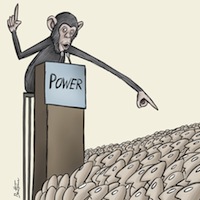
Introducing Our New Communication Jobs Board
The job market sucks. But it’s looking up here at CommunicationStudies.com. In an effort to continue being the best online resource for those in the field of communication studies — or just those interested in learning about communication — we have just launched a job listings board to keep our fellow communication scholars, new graduates and professionals employed and living large.








